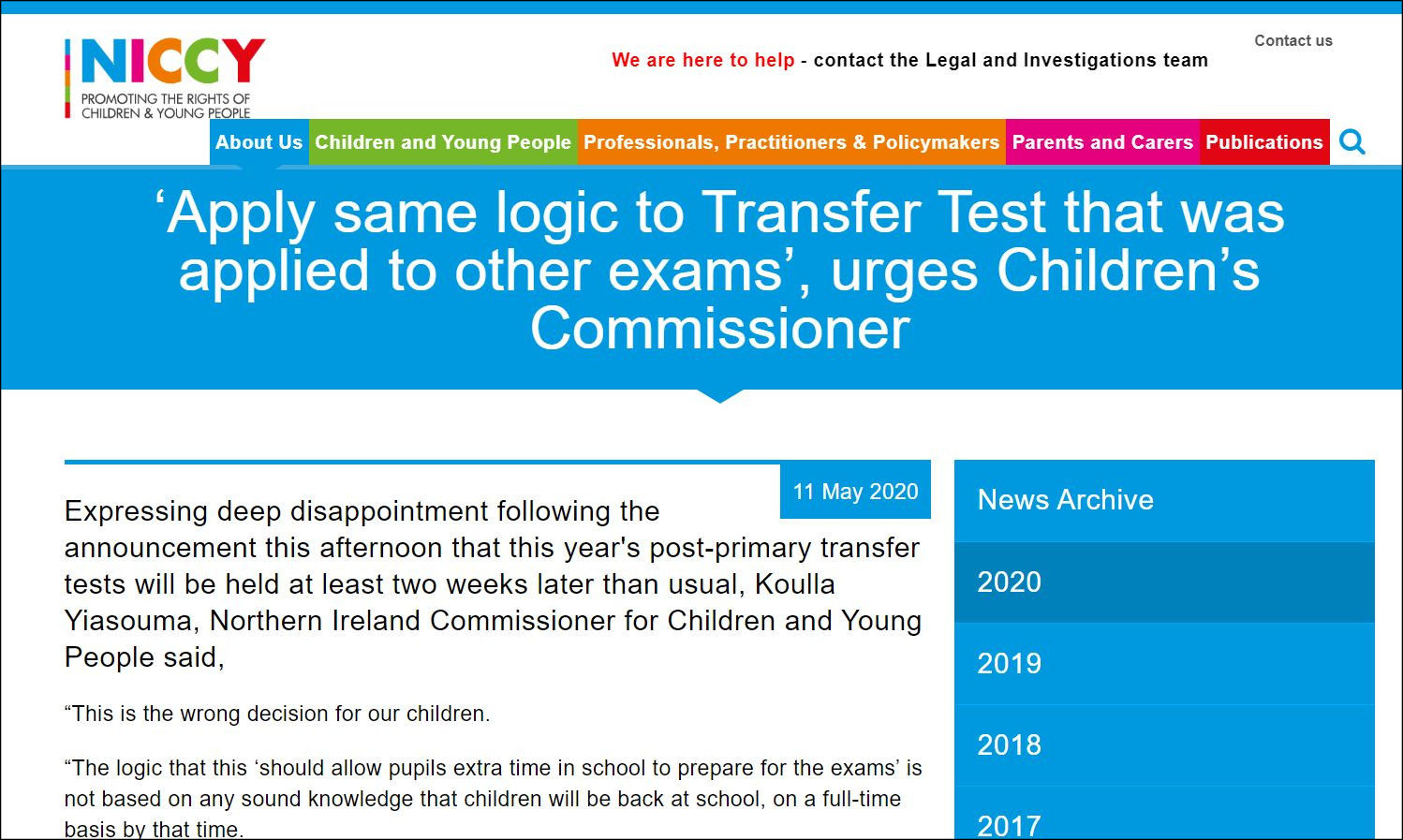We cannot have our schools and classrooms open if neither staff nor children feel or are safe. There must always be thorough and regular risk assessments that consider what measures should be taken and what controls need to be put in place to manage the risks. I am hopeful that the announcement from the Minister for Education with regards to schools opening in September will allow time for relevant safeguards to be put in place.
The UN Committee reminds governments that while online learning can be a suitable alternative to classrooms for many children, for others it can pose significant challenges. These children include those whose families do not have the resources to access the necessary technology. I am pleased that initiatives here are beginning to be put into place to ensure children without tablets and other equipment can get them. I am disappointed however that these children were not identified much sooner and co-ordinated solutions not found much earlier. It’s week 8 and still some children do not have the equipment necessary to participate in education.
Online learning also presents difficulties to many children living in rural areas where fast broadband and 4G networks are either unavailable or only intermittently available. Remedies must be found to alleviate all of these inequalities.
Exams
I am pleased that CCEA has issued clear guidance with regards to GCSE and A Level results and I believe they have done their best in difficult circumstances. Whilst not perfect, it is a solution that must work so that our young people can progress to the next phase of their lives. I am concerned that following the decision not to enable AS grades to contribute to the A2 grade, some young people, in year 13/lower 6 may feel that their study thus far has been for nothing. These feelings are understandable and must be addressed by relevant authorities, reminding young people that their hard work has been meaningful. Article 29 of the UNCRC tells us that education is about ensuring children develop the talents, skills and abilities. For too long we have relied on exams as the primary measurement of success for our education system. It is one measurement but cannot be used in isolation.
Therefore, to all those young people, particularly those studying for AS, I want to say that all your work and study this year is not for nothing. You have already learned so much about the subjects you have chosen to study, and about yourself, which will help you prepare for your final year in school or whatever path you choose to take.
We must be very clear with the classes of 2020 that their qualifications are just as valuable and valid as those awarded in previous years. You never know, this new approach of using centre awarded grades might become a template for the future.
We at NICCY are looking forward to engaging with CCEA on the arrangements, particularly the appeals processes which must be fair and include an element of independence.
Transfer
It is difficult to understand why the same logic as that used for GCSE and A’level students has not been applied to those children taking the transfer test. To be clear NICCY is utterly opposed to any system that so profoundly selects children at the age of 11. It is unfair, and discriminates against children from poorer families, those with Special Educational Needs and those experiencing other adversities and the current crisis may mean that when schools do open, that gap will have widened. It also places unnecessary stress on 10 and 11 year old children.
 Therefore I was severely disappointed at the statement from AQE and PPTC (the private organisations who operate the tests) that the tests will be delayed by 2 weeks to the end of November and beginning of December. It would appear that little consideration has been given to the fact that all children will not have been in school for over 5 months by the time they return, probably on a part-time basis, in September. It is likely that children from poorer families may not have been able to access online learning in the same way as other pupils have and so will be placed at an academic disadvantage when they return. It is cruel to then expect them to participate in a formal test just a few months later.
Therefore I was severely disappointed at the statement from AQE and PPTC (the private organisations who operate the tests) that the tests will be delayed by 2 weeks to the end of November and beginning of December. It would appear that little consideration has been given to the fact that all children will not have been in school for over 5 months by the time they return, probably on a part-time basis, in September. It is likely that children from poorer families may not have been able to access online learning in the same way as other pupils have and so will be placed at an academic disadvantage when they return. It is cruel to then expect them to participate in a formal test just a few months later.
It is likely that many children will have experienced anxiety during the lockdown and adding further stress of tests is unforgiveable.
Ultimately, the decision lies with grammar schools to set their entry criteria. I am making a clear call to them to engage with their primary school colleagues, parents and children and agree a criteria that has the interest of children at the core.